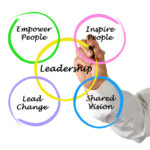This may seem like a strange question to ask, but it’s important to understand a person’s motivation for seeking remote work. If people want to be home to care for aging parents or children, it may affect the hours they can keep or the distractions they face. That won’t necessarily disqualify them, but it is something to explore during the interview.
It also gives you insight into who they are as an employee. For example, if someone talks about how they are more productive working from home, or they like the idea of working without geographical limitations, they are framing their answer in a way that talks about the professional advantages of remote work. This helps demonstrate that they are career-oriented and (hopefully) a loyal and stellar employee.
On the other hand, if the candidate talks about how they want to work in their pajamas or that they don’t like having a boss breathing down their neck, they’ve framed the answer in a more personal way. There’s nothing wrong with personal reasons for pursuing remote work. However, answers like these indicate that a candidate is more motivated by personal gain than professional growth. This, in turn, could be a warning sign that this candidate will not be a great addition to your team.
3. Have you worked with a distributed team? How did it go? (Or how will you deal with the challenges?)
When you work in an office, you can usually get the answer you need when you need it. Simply pop into a coworker’s or supervisor’s office and ask your question. If that person is in a meeting, no big deal. Swing by later and get the answer then.
When the team is remote, though, it’s not so easy to get an answer when you need it. Not only is there no “office” to pop into, not everyone works the same hours. When the team is distributed across as many as 24 time zones, it may be a full working day before a question is answered.
New remote workers may be in for a shock when they find out their supervisor is 12 time zones away, and they can’t always get the answer they need when they need it. Ask how they plan on dealing with that. How will they get the answers they need? What if it’s an emergency? Finding out how they will deal with the situation will give you insight into their problem-solving and answer-seeking skills.
And, if they have some experience working with a distributed team (even if the applicant has never worked remotely), ask how they handled the inevitable issues that arise. How did they get their questions answered? Did they sit back and wait for an answer? Or did they actively pursue the answer? Were they persistent without being obnoxious? There are right and wrong ways to communicate with a distributed team, and how an applicant pursued the answer will help you determine if that person understands the difference.
4. Where Do You Prefer to Work?
Ask how and where the candidate plans on working. If they already work from home, ask about their home office setup. Does the candidate already have everything a remote worker needs to be productive? Is it someplace that is relatively free of distractions? Ask what the home office setup is like and, if possible, conduct a video interview and encourage the candidate to participate from that home office. Reiterate any home-office requirements like a wired internet connection, a private area for calls, or anything else you specified in the job posting.
Keep in mind, though, that not everyone works best in a traditional office set up — some people like the couch, the backyard, or the public library. Ask about the technology they have access to and how they have access to it. If they like working from the coffee shop, do they have a way to connect to your office server privately? Or, are they relying on a public internet connection? Not having a “home office” should not disqualify someone from the job. However, understanding how and where an applicant works best helps you understand them as a potential employee.
And, if this is a first-time remote worker or a hybrid position that’s both in-office and work-at-home, the candidate may not yet have a home office setup. Ask the candidate what their office setup plans are, or if they plan on heading to a coffee shop or coworking space. For a hybrid position, ask if the candidate is going to invest in a home office, or use the kitchen table. Asking the questions now will help you see if the candidate has thought through all of the particulars of remote work.
5. How Would You Rate Your Tech Skills?
No matter what kind of hardware and software you provide employees, they have to be comfortable using it and troubleshooting it on their own. As a remote team, your staff won’t have easy access to tech support, so what happens when their computer crashes or the virtual meeting won’t work?
If they talk about how they hate dealing with new technology or can’t stand updating their computer, dig into this a little more. If someone wants to work remotely but can’t—or won’t—deal with the inevitable tech hiccups that will come their way, they could lose hours of productivity while they wait for technical support. Not every tech problem can be solved by an employee, but they should have some comfort with handling the easier tech problems that will occur.
6. How do you plan on communicating with a remote team?
The thing about working remotely is that you never bump into your coworkers for a random conversation in the break room. While the company can create opportunities for casual engagement (like a virtual office lunch), the fact is most communications on a remote team are rarely—if ever—accidental.
Ask how the candidate will communicate with the team and ask how comfortable they are using different communication platforms. Do they stick only with email? If so, why? What about using virtual meeting spaces to communicate in real-time? How about chat rooms?
Remote employees should be comfortable using a wide range of communication platforms. Email is great for some types of communication, but not others. Chat rooms are great for collaborative projects, but maybe not so much for personal ones. Asking what communication platforms they use and why they use them will help you better understand how they communicate and collaborate with their team.
7. How do you stay focused on your tasks?
Distractions are a fact of life for any worker, but they’re different for remote employees than the ones people face in an office setting. That might be a noisy roommate, getting distracted by news alerts, or even living on a busy street.
Asking candidates how they stay focused on tasks now (no matter where they work), will give you some insight into how they might face distractions as a remote employee. By starting with the broad question, you’ll be able to hone in on a more remote-specific follow-up question.
For example, if the candidate says, “In the office, I use noise-canceling headphones to block out noisy coworkers,” you can follow up with, “Will you face that same distraction when you work remotely? Do you think the same strategy will work, or will you need to do something different?”
Follow-up questions that focus on remote-specific distractions will help you learn more about the candidate’s work environment. And it will also help you see if the candidate has thought about (and can deal with) the unique distractions remote workers encounter.
8. What challenges do you think you’ll face working remotely, and how will you deal with them?
People that haven’t worked remotely before haven’t experienced the unique challenges of remote work. If all someone can come up with is, “Which pair of fuzzy slippers to wear,” then they haven’t thought through all of the potential problems that can crop up when you work remotely.
New remote workers should have something a little more realistic. “I’m worried about feeling isolated, but I’m going to join a sculpting class,” tells you that the person has identified the problem and has a plan in place for dealing with it. This also shows that the person is a forward thinker and anticipates and heads off problems before they spiral out of control.
9. What do you like and what do you dislike about working in an office?
One often overlooked but important aspect of remote work is that some people need the office atmosphere and the presence of colleagues to do their best work. Unfortunately, not everyone thinks about this before transitioning to remote work.
Explain to the candidate that while working remotely doesn’t mean you’ll never socialize with your coworkers, it does mean they will socialize differently. Instead of having lunch together, they might have a virtual lunch over video. Or, instead of hanging out by the coffee machine, they’ll hang out in Slack instead. Ask how the applicant feels about his, or if they have any experience with virtual hangouts.
And, be on the lookout for red flags. For example, if a candidate says that they love the company’s team-building opportunities, or their favorite activity is the 10 AM coffee cart, dig a little deeper and see why the candidate is interested in remote work. You may find that they never thought about the lack of face-to-face socialization and may discover that remote work isn’t right for them.
10. What’s the most challenging project you ever designed and executed?
Working remotely requires employees to be very self-motivated. Without a manager nearby (or breezing past their desk), it’s easy for people to get distracted or lose their drive. The answer will speak to the candidate’s motivation and ability to get the job done when there’s nothing else motivating them—except themselves.
11. Tell me about a risk you took and failed. What did you learn?
Adding a new team member to any kind of team requires an adjustment from everyone. However, it’s the new hire that will adjust the most. As the newest team member, applicants have to be flexible, open to suggestions, willing to experiment and try new things, and learn from their mistakes.
Asking for an example will give you some insight into how the candidate operates. Do they have one way and only one way of doing things? Do they learn and grow from their mistakes? Are they willing to admit they made a mistake? These answers will help you determine whether or not they are truly flexible and can mesh well with your existing team.
12. How do you switch off from work?
No matter where you work, working remotely can sometimes blur the line between work life and personal life. When your office is five feet from your family room, it’s hard to ignore that unfinished project that will only take “just a few minutes” to complete.
Ask how applicants plan to manage their days, take appropriate breaks, and stop working when it’s quitting time. Just as you need them to focus on tasks during their work hours, you also need them to have balanced lives if you want to avoid burnout.
Understanding how they switch out of work mode will help you better understand how they will do it when they are working for you. Whatever it is, try to find out what they do now that can help them “turn off” when they make the switch to a fully remote employee.
THE RIGHT QUESTIONS
Asking the right questions of any applicant gives you insight into who they are as an employee. Hiring remote employees is no different. But asking remote-specific questions will help you figure out if they are the right remote employee for your team.
Source: Fast Company
 BY HARVEY DEUTSCHENDORF
BY HARVEY DEUTSCHENDORF



 BY GREG KRATZ—FLEXJOB
BY GREG KRATZ—FLEXJOB
 This article was written by Wharton professor emeritus of management
This article was written by Wharton professor emeritus of management